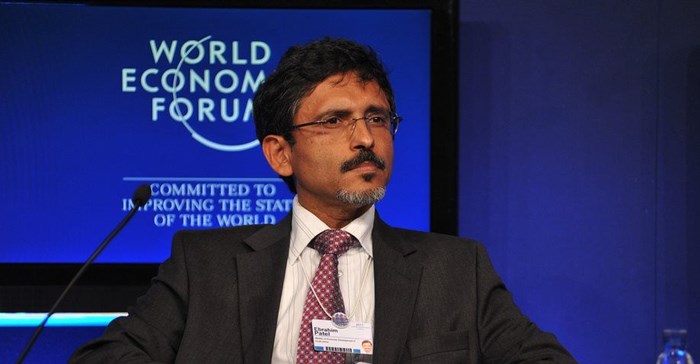Locally made ventilators go into production

These ventilators will complement the existing stock in the public and private healthcare industry and additional purchases of ventilators from global manufacturers, and donations received from other countries.
"Given the enormous global shortage of ventilators, a few months ago we started the National Ventilator Project (NVP), with the aim of rapidly facilitating local development and manufacturing of thousands of non-invasive ventilators," Trade, Industry and Competition Minister Ebrahim Patel said.
This development comes after an intense few months during which prototypes were designed, developed and tested, while adhering to very strict technical and safety specifications.
The South African Radio Astronomy Organisation (SARAO), responsible for one of the world’s largest science initiatives, the Square Kilometre Array radio-astronomy project, put together an experienced team, led by Professor Rob Adam, to manage the process.
Approvals and funding
Approval for the ventilators was given by the South African Health Products Regulatory Authority (SAHPRA), which conducts stringent testing to ensure compliance with the highest levels of safety. Funding mechanisms to speed-up the process made significant progress in the past month.
In the space of four months, South Africa has gone from not producing any ventilators at all, to having the first units in production.
The role of partnerships
Patel said the NVP is a great example of innovation and partnerships between relevant stakeholders. “The National Ventilator Project is a great example of partnership and innovation, and what we can achieve when we work together toward common objectives.
“With prototypes approved, funding raised and component supply lines secured, manufacturing has begun. The project has also identified that we have the industrial capacity to scale up production for exporting ventilators to other African countries should the need arise,” said the minister.
Costs
Following a thorough and open process requesting proposals from local innovators and industry, which resulted in 95 proposals, the NVP identified several companies/consortia with the capabilities to produce ventilators at the required specifications.
The average unit cost is around R12,500, which is significantly lower than anything that can be found commercially.
Most of the funding for the production of 20,000 units has been secured from the Solidarity Fund, with funds already provided to purchase the first 10,000 units.
Negotiations are underway to fund the additional units. The Fund has previously also funded prototype development for the NVP to the value of R11.3m.
Chairperson of the Solidarity Fund, Gloria Serobe, said the NVP has shown how partnerships can lead to the achievement of life saving goals.
“The National Ventilator Project is of huge importance during the Covid-19 crisis, and we are pleased to be able to provide significant funding towards it. It is yet another example of how speedily we can achieve life-saving objectives when we come together and pool our expertise," she said.
Minister Patel initiated the NVP in April, together with the Minister of Higher Education, Science and Technology, Dr Blade Nzimande, appointing SARAO to serve as project managers, given their world-leading systems integration and systems engineering capabilities.
“This project has benefited from the active support of and collaboration with Ministers Blade Nzimande and [Health Minister] Zweli Mkhize, drawing in the technical capabilities of public institutions and the private sector and working closely with the Solidarity Fund,” said Patel.
Way forward
Based on clinical experience in global epicentres like China, Italy, the UK and the US, senior critical care physicians advised that South Africa should focus on the production of non-invasive continuous positive airway pressure (CPAP) devices. This is while the health system focused on procuring more complex and invasive ventilators to supplement current devices.
Out of the 95 proposals received, six were selected to continue to the prototyping phase. Four manufacturers have received SAHPRA approval.
Meanwhile, the Solidarity Fund has already approved funding for the Council for Scientific and Industrial Research (CSIR) project, which has started production on an order of 10,000 units that will be delivered in stages over the next two months.
Negotiations with other entities are currently underway.
The CSIR anticipates that the first batch of 2,000 ventilators will be delivered within the next few weeks, with further units delivered by mid-August, and the balance by the beginning of September
Source: SAnews.gov.za
SAnews.gov.za is a South African government news service, published by the Government Communication and Information System (GCIS). SAnews.gov.za (formerly BuaNews) was established to provide quick and easy access to articles and feature stories aimed at keeping the public informed about the implementation of government mandates.
Go to: http://www.sanews.gov.za


































